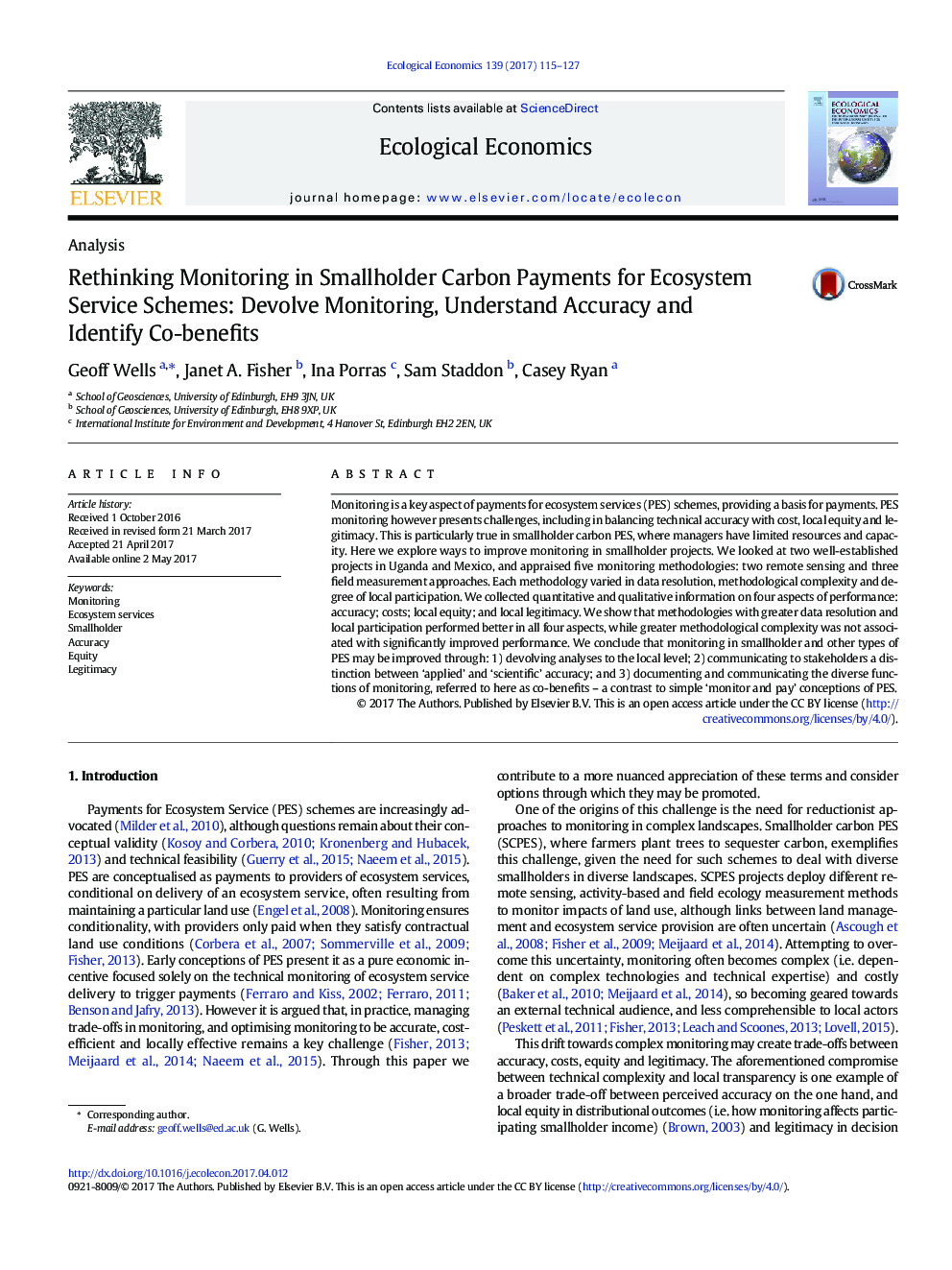| کد مقاله | کد نشریه | سال انتشار | مقاله انگلیسی | نسخه تمام متن |
|---|---|---|---|---|
| 5048807 | 1476340 | 2017 | 13 صفحه PDF | دانلود رایگان |
- Improved data resolution can improve local equity and accuracy in PES monitoring.
- Local participation can improve costs, equity and legitimacy in PES monitoring.
- Devolving data analysis to local actors may improve technical and social outcomes.
- Separating 'scientific' from 'applied' accuracy may allow simple, robust monitoring.
- Recognising the social role of monitoring may support better monitoring design.
Monitoring is a key aspect of payments for ecosystem services (PES) schemes, providing a basis for payments. PES monitoring however presents challenges, including in balancing technical accuracy with cost, local equity and legitimacy. This is particularly true in smallholder carbon PES, where managers have limited resources and capacity. Here we explore ways to improve monitoring in smallholder projects. We looked at two well-established projects in Uganda and Mexico, and appraised five monitoring methodologies: two remote sensing and three field measurement approaches. Each methodology varied in data resolution, methodological complexity and degree of local participation. We collected quantitative and qualitative information on four aspects of performance: accuracy; costs; local equity; and local legitimacy. We show that methodologies with greater data resolution and local participation performed better in all four aspects, while greater methodological complexity was not associated with significantly improved performance. We conclude that monitoring in smallholder and other types of PES may be improved through: 1) devolving analyses to the local level; 2) communicating to stakeholders a distinction between 'applied' and 'scientific' accuracy; and 3) documenting and communicating the diverse functions of monitoring, referred to here as co-benefits - a contrast to simple 'monitor and pay' conceptions of PES.
Journal: Ecological Economics - Volume 139, September 2017, Pages 115-127
